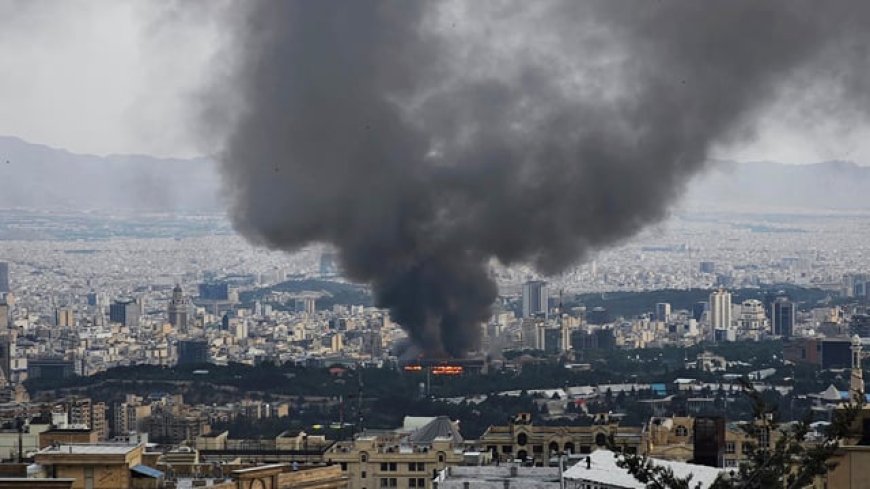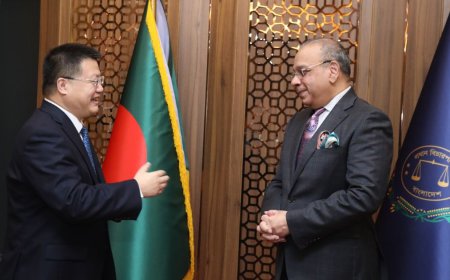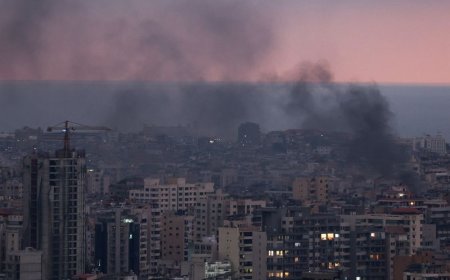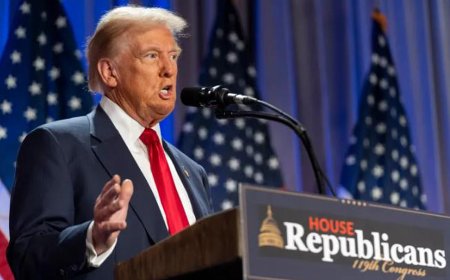Iran rules out nuclear talks with US until Israeli 'aggression' ends
Iran rules out nuclear talks with US until Israeli 'aggression' ends.

Iran Rejects US Nuclear Talks Amid Escalating War With Israel
Iran on Friday ruled out resuming nuclear negotiations with the United States unless Israel halts its ongoing military offensive, while Israel's military chief warned that the conflict, now entering its second week, is likely to continue for an extended period.
Explosions echoed across Tehran as Iran’s Fars news agency reported that air defenses had been activated. Israel continued its bombardment, and Iran retaliated by launching missiles at its long-standing adversary.
“We must prepare for a prolonged campaign,” said Israeli military chief Eyal Zamir in a video message, eight days after Israel initiated widespread strikes targeting Iran’s nuclear and military sites—efforts it claims are aimed at preventing Iran from developing nuclear weapons, a charge Tehran denies.
“The campaign is not over. Despite significant achievements, challenging days remain ahead,” Zamir added.
As US President Donald Trump weighs whether to enter the conflict between the two countries, senior diplomats from Britain, France, and Germany held talks with Iranian Deputy Foreign Minister Abbas Araghchi in Geneva.
Speaking after the talks, Araghchi emphasized that Iran was open to renewed diplomacy but only once Israeli aggression ceases. “Iran is ready to re-engage diplomatically once the aggression is stopped,” he stated. However, he affirmed that discussions with the European countries would continue and suggested further meetings could take place soon.
French Foreign Minister Jean-Noel Barrot urged Iran to consider negotiating with all parties, including the United States, without waiting for an end to the strikes. “There can be no final solution to the Iran nuclear issue through military means,” Barrot said, warning against any attempts at regime change, especially after Israeli Prime Minister Benjamin Netanyahu hinted at targeting Iran's Supreme Leader Ayatollah Ali Khamenei.
In Tehran, an AFP reporter observed shuttered shops and largely empty markets on Friday. “I’m not afraid of war, so I remain open, but business is very bad,” said a vendor at Tajrish market, declining to give his name for security reasons. Police set up checkpoints as repair crews worked on roads damaged by Israeli strikes.
450 Missiles Fired
Since launching its offensive on June 13, Israel has struck nuclear, military, and civilian targets in Iran. In response, Iran has fired volleys of missiles and drones, which Israeli authorities say have killed at least 25 people. A hospital in Haifa reported 19 injuries from the latest barrage, including one critically wounded.
According to Israel’s National Public Diplomacy Directorate, Iran has so far launched over 450 missiles and around 400 drones. Iran claims at least 224 of its people have been killed in Israeli attacks, including military commanders, nuclear scientists, and civilians, though no updated toll has been released. Separately, US-based Human Rights Activists News Agency estimates at least 657 fatalities inside Iran, including 263 civilians.
Israel’s military said it targeted missile launchers in southwestern Iran following overnight raids that struck dozens of locations, including a nuclear research facility. Sirens wailed again in Israel Friday afternoon following a second round of missile launches from Iran. Iran’s Revolutionary Guards said they had struck military installations and airbases.
President Trump stated Thursday that he would decide "within the next two weeks" whether to bring the US directly into the conflict. Meanwhile, a US Navy official confirmed Friday that a third aircraft carrier would be moved closer to the region next week.
Global Warnings of Escalation
“This is a dangerous moment. It’s absolutely critical that we avoid further regional escalation,” warned UK Foreign Secretary David Lammy, reiterating that "Iran must never acquire a nuclear weapon."
Western powers continue to suspect Iran is seeking nuclear weapons capability. However, Rafael Grossi, head of the International Atomic Energy Agency, said that while Iran enriches uranium up to 60 percent—the highest level for any non-nuclear weapons state—there is no conclusive evidence it possesses all the components necessary for a functional warhead. "We have not seen evidence of an active nuclear weapons program," Grossi told CNN.
Israel's Foreign Minister Gideon Saar, speaking to Germany’s Bild, dismissed diplomatic avenues. “All diplomatic efforts have failed,” he said, defending Israel’s support for Trump’s 2018 withdrawal from the previous nuclear agreement.
Meanwhile, Turkish President Recep Tayyip Erdogan warned that the conflict is rapidly approaching “the point of no return” and urged, “This madness must stop immediately.” UN Secretary-General Antonio Guterres also appealed for restraint, calling on all sides to “give peace a chance.”
If the US decides to intervene, its involvement is expected to include potential strikes on Iran's fortified uranium enrichment facility at Fordo, utilizing bunker-busting munitions that only Washington possesses.
Switzerland announced the temporary closure of its embassy in Tehran but confirmed it will continue representing US interests in Iran.
What's Your Reaction?






















































































